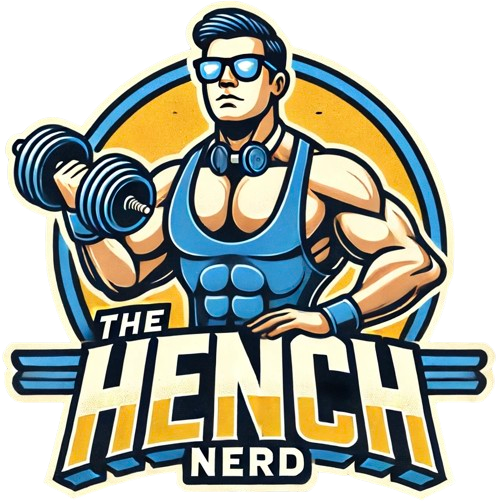If you’re thinking of going on T, you’ve likely hit a point where you’re feeling fed up—tired, unmotivated, losing muscle mass, and piling on fat. TRT (Testosterone Replacement Therapy) seems like the golden ticket to restoring your vitality. But before you start filling out those forms at a TRT clinic, let’s take a step back and consider some crucial pre TRT tips that can help you achieve the same results—naturally.
Dr. Abraham Morgentaler, an Associate Clinical Professor of Urology at Harvard Medical School, states, “Testosterone levels are intricately linked to lifestyle factors such as body weight, exercise, and sleep. Even small adjustments in these areas can yield significant improvements in testosterone levels without the need for external intervention.”
Men often jump into TRT without addressing the real reasons behind their low testosterone, and that’s where the problems start. By mastering a few key lifestyle changes first, you might find that your testosterone levels bounce back without needing a prescription.
do you honestly think your body is going to thrive if you’re not optimising the below? Why on earth would it give you high levels of testosterone (a sign of thriving) if you’re treating it like crap at every opportunity? think about that? You shouldn’t be thinking of going on T, You should be thinking, how to clean up your act. if you think TRT will solve all your woes… think again.
if you haven’t read my post all about how I raised my testosterone levels, I’d recommend you start there and come back this post.
Key Takeaways To Consider Before Going On TRT
- If you’re thinking of going on T, make sure you’re addressing the underlying lifestyle issues first. Most men experience low testosterone symptoms because they’re not optimising the basics: diet, exercise, sleep, and stress management.
- Before reaching for TRT, consider the crucial pre TRT tips: lose excess body fat, prioritise strength training with compound lifts, ensure you’re getting quality sleep, and manage stress to keep cortisol in check.
- Cholesterol is the building block of testosterone—don’t fall for outdated dietary advice that demonises healthy fats. A diet with higher saturated fats, moderate protein, and lower carbohydrates can significantly boost your natural testosterone production.
- Environmental factors like plastics, non-stick cookware, and certain grooming products contain endocrine disruptors that mimic oestrogen and interfere with male hormone health. Clean up your environment to create a healthier hormonal balance.
- TRT is a lifelong commitment with potential side effects and dependency issues. If you’ve genuinely exhausted every avenue and still have testosterone deficiency, TRT might be an option. But most men can restore their hormone levels naturally with the right lifestyle changes.
Why You Need to Rethink Going on TRT: The Real Issues Behind Low Testosterone
TRT can work wonders for men who have genuine, medically diagnosed low testosterone levels due to primary hypogonadism or other rare conditions. But for the majority of men considering TRT, their hormone issues are self-inflicted. Yes, you heard that right. Low testosterone is often the consequence of years of poor diet, lack of exercise, sleep deprivation, and chronic stress.
Here’s 6 crucial pre trt tips to consider if you’re thinking of going on T
The 6 Pre TRT Tips To Consider Before Going on TRT
Let’s dive into the crucial pre TRT tips you need to know before considering TRT. These are the five pillars of optimising your health and naturally increasing testosterone production. Nail these, and you might just find you don’t need TRT at all.
A Pre Warning On Supplements To Increase testosterone
You can find an article on supplements to raise testosterone within this category. unless you’ve got all of the below nailed down, don’t bother with them. you’re throwing your money away.
1. Lose Fat and Get Lean: The Foundation of Healthy Testosterone Levels

Before the eagle eyed amongst you spot that alcohol is omitted from this article. Please treat as a given that cutting down on/eliminating alcohol improves every health marker. Testosterone is no different.
This is up there as one of the top pre trt tips. Carrying excess body fat is one of the main reasons men over 40 experience low testosterone (you’re creating an excessive estrogen friendly environment). Fat tissue, especially around the midsection, produces an enzyme called aromatase, which converts testosterone into oestrogen—leaving you feeling sluggish, unmotivated, and at the mercy of a hormonal imbalance.
If you’re considering going on TRT, getting your body fat down to at least 15% is the first step you need to take. Here’s a detailed action plan to help you do just that:
Action Plan for Shedding Fat and Optimising Testosterone Levels
Calorie Deficit: Maintain a daily calorie deficit of approximately 500 calories. This is a sustainable approach for losing fat while maintaining muscle mass.
Protein Intake: Eat 1 gram of protein per pound of lean body mass each day. This provides the building blocks for muscle repair and helps maintain lean muscle during fat loss.
Prioritise Healthy Fats:
In practice, here’s how it looks.
- Saturated Fats and Monounsaturated Fats: Incorporate healthy saturated fats, such as those found in fatty cuts of meat, butter, eggs and coconut oil. Include monounsaturated fats from sources like avocados, olive oil, and macadamia nuts.
- Avoid Polyunsaturated Fats: While once considered healthy, polyunsaturated fats (such as those in vegetable oils) oxidise easily and can lead to inflammation, negatively impacting testosterone levels. Stick to natural fats.
- Stay Away from Trans Fats and Fried Foods: Trans fats and fried foods disrupt hormone levels, increase inflammation, and promote fat gain.
- Lower Carbohydrate Intake, Adjusted for Activity Levels: Focus on eating carbohydrates in accordance with your activity. Opt for slow-digesting carbs like sweet potatoes and green vegetables. Avoid grains and high-sugar foods, as excess sugar can lower testosterone significantly.
- Eat More Filling Fruits and Vegetables: Include fibrous vegetables and low-sugar fruits like berries to keep you feeling full and to support a calorie deficit without spiking blood sugar.
For more information check out what foods raise testosterone the most?. and one of my fat loss articles for in depth guidance.
A study from the American Journal of Clinical Nutrition found that “diets higher in polyunsaturated fats, particularly omega-6 fatty acids, are associated with lower serum testosterone levels in men
Ideal Macronutrient Ratios
- • 50% of Calories from Fats
- • 30% of Calories from Protein
- • 20% of Calories from Carbohydrates
Adjust these ratios slightly based on personal goals and dietary adherence. For example, those aiming to build more muscle may increase protein slightly, while those looking to boost energy for high-intensity workouts may increase carbs by 5-10%.
Following these dietary principles will not only help you get leaner but will also support your body’s natural ability to produce testosterone. You’ll see a massive difference in energy levels, mood, and overall vitality by sticking to this structured approach.
In case you haven’t read my articles on fat loss and nutrition….. a quick word on meal frequency. Well two words – it’s irrelevant :). Go and check out that section to learn more and find more pro trt tips.
According to a study published in the Journal of Clinical Endocrinology & Metabolism, “Obesity and lack of physical activity are two of the most common modifiable risk factors for testosterone deficiency in men over 40.”
The Role of Cholesterol: The Misunderstood Building Block of Testosterone
Testosterone is literally made from cholesterol, and cholesterol itself is vital for overall health. It’s the precursor to all sex hormones, including testosterone, oestrogen, and progesterone.
Yet, we’ve been led to believe that dietary cholesterol and fats are the enemy. This couldn’t be further from the truth. The reality is that we’re eating less fat than ever before, yet we’re right in the middle of an obesity epidemic, and testosterone levels are at an all-time low. Why? Because today’s dietary advice—pushing low-fat diets and grain-heavy eating—is fundamentally flawed.
We’ve been utterly brainwashed into thinking that avoiding fats and filling up on refined carbohydrates is the answer to a healthy diet, but the evidence doesn’t support this. If you want to boost your testosterone naturally, you need to embrace healthy fats and stop fearing cholesterol. When you give your body the nutrients it needs to produce testosterone, the results speak for themselves: higher energy levels, better mood, and improved muscle mass.
By implementing these changes, you’ll be putting yourself on the right track to improving not just your testosterone levels, but your overall health and well-being—without resorting to TRT.
Dr. David Diamond, Professor of Psychology, Molecular Pharmacology, and Physiology at the University of South Florida, states, “The narrative that dietary cholesterol increases heart disease is not supported by evidence. In fact, cholesterol is essential for hormone production and cellular health
According to a comprehensive analysis from the Spark Health Program, “Eggs contain nutrients like cholesterol and vitamin D that can support testosterone production. Including moderate amounts of eggs in a balanced diet can contribute to maintaining healthy testosterone levels.” Similarly, fresh cuts of beef and other meats are rich in essential nutrients like iron and conjugated linoleic acid (CLA), both of which have been linked to hormonal balance
2. Lift Heavy and Often: The Key to Boosting Natural Testosterone

If you’re serious about avoiding TRT, you need to start lifting heavy and consistently. Resistance training is one of the most effective natural testosterone boosters because it signals your body to produce more of this crucial hormone.
Training Guidelines for Optimising Testosterone
- Lift Heavy, Compound Movements Only: Exercises like squats, deadlifts, bench presses, and overhead presses engage multiple muscle groups, stimulating more testosterone production.
- Lift 2-3 Times a Week: This keeps your testosterone levels elevated and improves muscle mass, whilst ensuring great recovery. Overtraining also tanks T levels. Train harder and visit the gym less
- Supplement with High-Intensity Interval Training (HIIT) and keep your daily steps up): HIIT has been shown to increase testosterone and growth hormone levels. It’s efficient, burns fat, and stimulates fast-twitch muscle fibres. Stay active with lower intensity walking and hit your 7500-10k steps a day
Rep Ranges and Rest Periods
Stick to 4-8 reps per set for strength and 8-12 reps for hypertrophy. Keep rest periods between 60-90 seconds for the best hormonal response.
If you’re not lifting heavy, you’re leaving testosterone gains on the table. Lifting boosts testosterone, increases lean muscle mass, and reduces body fat—all without any external hormone manipulation.
Again, you’ll find many articles in the muscle building and strength section and I’d recommend you start the section learning all about my own muscle building building mistakes.
A study in the European Journal of Applied Physiology found that “resistance training, particularly with heavier weights and lower repetitions, leads to a more pronounced acute increase in serum testosterone compared to endurance training
3. Sleep Like a Champion: How Sleep Impacts Your Testosterone Levels

When you’re not getting enough sleep, your body’s ability to produce testosterone takes a serious hit. The bulk of testosterone production happens during deep sleep, especially during REM cycles. Men who consistently get less than six hours of sleep a night are living in a hormonal drought—one that no amount of TRT is going to fix.
If you’re thinking of going on T because you feel constantly fatigued and unmotivated, look at your sleep habits first. Does sleep increase testosterone? Massively. Are you burning the candle at both ends, staying up late scrolling through your phone, or do you have inconsistent sleep patterns that vary night by night? Fixing these habits is crucial.
Key Sleep Tips to Boost Testosterone
- Aim for 7-8 Hours of Sleep Every Night: Consistency is key. Going to bed and waking up at the same time daily trains your body to fall into a natural rhythm, improving sleep quality and hormone production.
- Create a Sleep-Conducive Environment: Your bedroom should be cool, dark, and free from distractions. Remove electronic devices, or at the very least, use blue light filters in the evening to prevent disruption to your sleep hormones.
- Consider Supplementing with Magnesium: This mineral helps to relax your muscles, calm your nervous system, and improve sleep quality. Supplementing with 200-400 mg before bed can work wonders.
If you’re not prioritising sleep, it doesn’t matter how many times you hit the gym or how perfect your diet is. You’re hamstringing your progress. Get this sorted first, and I guarantee you’ll see improvements—not just in energy levels, but in mood, productivity, and motivation too.
A 2011 study by the Journal of the American Medical Association (JAMA) reported that “men who slept for only 5 hours a night over a one-week period experienced a 10-15% reduction in daytime testosterone levels
4. Manage Stress: High Cortisol Equals Low Testosterone
One of the least talked about, but most critical factors in testosterone production is stress management. When you’re under constant stress—whether it’s from work, finances, or family issues—your body produces cortisol, a hormone that directly competes with testosterone. When cortisol is high, testosterone is low. So, if you’re thinking of going on T but haven’t got your stress levels under control, you’re setting yourself up for failure.
The problem with modern life is that stress is everywhere. If you’re like most men, you’re dealing with it by turning to quick fixes—alcohol, junk food, or ignoring it altogether. But these coping mechanisms only compound the problem.
Effective Stress Management Techniques
- Daily Meditation or Mindfulness Practices: Just 10-15 minutes a day can lower cortisol levels significantly. Start your day with a simple breathing exercise or mindfulness routine to set a calmer tone.
- Physical Activity Beyond Weight Training: Engaging in activities like walking, hiking, or yoga can help reduce stress and balance cortisol levels.
- Hobbies and Social Interaction: Often overlooked, spending time doing activities you enjoy or engaging in social interaction can have a profound impact on stress management. Don’t isolate yourself—build a support network.
Treat stress management as seriously as you would any other aspect of your health.
Dr. Robert Sapolsky, a Professor of Neurology and Neurological Sciences at Stanford University, has shown in his research that “chronic stress disrupts the body’s ability to maintain optimal testosterone levels by increasing the production of cortisol
5. Micronutrients: The Missing Link in Your Hormone Health
If you’re thinking of going on T because you feel lethargic, lack motivation, or are struggling to gain muscle, chances are you’ve overlooked one critical aspect of your health—micronutrient intake. While macronutrients (protein, fat, and carbs) get all the attention, it’s often deficiencies in key vitamins and minerals that are sabotaging your testosterone levels.
For your body to produce testosterone effectively, it requires specific nutrients like zinc, magnesium, and vitamin D. Most men are deficient in at least one of these, leading to suboptimal testosterone production. Instead of jumping on the TRT bandwagon, start by addressing optimising micronutrients for testosterone.
Essential Micronutrients for Testosterone
- Zinc: This mineral is crucial for testosterone production and immune function. Deficiency in zinc is directly linked to lower testosterone levels. Include zinc-rich foods like red meat, shellfish, and pumpkin seeds in your diet. Alternatively, a quality zinc supplement can help bridge the gap.
- Magnesium: Magnesium supports testosterone production by lowering inflammation, reducing cortisol, and improving sleep quality. Foods like spinach, almonds, and dark chocolate are excellent sources. Consider supplementing if your diet is lacking.
- Vitamin D: Known as the “sunshine vitamin,” vitamin D is actually a hormone that plays a significant role in testosterone production. With limited sun exposure, particularly in the UK, most men are deficient. Spend more time outdoors, or consider a vitamin D3 supplement. Pro pre trt tip – get out in the sun more.
- B-Vitamins (B6, B12, Folate): These vitamins are involved in energy production and hormone regulation. A deficiency can lead to decreased energy and reduced testosterone. Eggs, dairy, and leafy greens are good sources.
If you’re not getting these critical micronutrients in sufficient amounts, it’s no wonder your testosterone levels are lagging. Supplementation can help, but it should be viewed as a support tool, not a replacement for a balanced diet. Address these deficiencies, and you might see significant improvements in energy, mood, and libido—without needing to consider TRT.

A 2010 study published in the Hormone and Metabolic Research Journal found that “men who supplemented with 3,000 IU of vitamin D daily for one year experienced a 25% increase in free testosterone levels compared to a control group.
6. The Hidden Dangers of Everyday Items and How They Impact Testosterone

If you’re thinking of going on T and seeking pre TRT tips, you need to understand how your environment might be sabotaging your hormone health. Plastics, non-stick cookware, and personal care products often contain synthetic chemicals known as xenoestrogens. These compounds mimic oestrogen, throwing your testosterone levels out of balance and contributing to hormonal chaos.
Plastics and BPA (Bisphenol A)
Plastics found in water bottles, food containers, and packaging often contain BPA—a chemical linked to reduced testosterone and increased oestrogen levels. BPA leaches into food and drink, especially when plastics are heated or scratched.
Use glass or stainless-steel containers, avoid microwaving in plastic, and look for BPA-free options.
Non-Stick Cookware
Non-stick pans contain chemicals like PFOA (perfluorooctanoic acid), which disrupt testosterone levels when exposed to high heat. Over time, these chemicals leach into your food, leading to hormonal imbalances.
Replace non-stick pans with stainless steel, cast iron, or ceramic alternatives.
Personal Care Products
Shampoos, deodorants, and aftershaves often include parabens and phthalates—compounds that mimic oestrogen and reduce testosterone. These chemicals are absorbed through the skin and accumulate over time.
Opt for natural or organic personal care products labelled “paraben-free” and “phthalate-free.”
Minimising exposure to these chemicals might seem like a small step, but it’s a critical one. Cleaning up your environment can support healthy testosterone levels naturally, allowing your body to function at its best—without the need for TRT.
You won’t be able to eliminate all of these, but minimise what you can.
A study from the Environmental Health Perspectives Journal states that “exposure to BPA can lead to decreased testosterone and altered hormone levels, particularly in adult men
Why You Shouldn’t Rely on TRT Clinics for Long-Term Health
TRT clinics are popping up left, right, and centre, preying on men who are desperate to regain their vitality. But these clinics have one primary goal: making money. They’re not interested in your long-term health….Okay this statement is a little harsh – most of them want your money. I was lucky enough to engage in a consultation with an honest clinic. read about my journey and how I followed the exact protocol above to increase my testosterone levels (with proof). The quicker they can get you on TRT, the better for their bottom line. But what about you? What’s the long-term plan?
The Reality of TRT Dependency
Once you start TRT, your body’s natural testosterone production slows down or stops altogether. This means you’ll be dependent on synthetic testosterone for the rest of your life. Yes, you might feel great initially—energy levels will surge, libido will return, and you’ll think you’ve found the solution. But what happens if you want to stop? Without TRT, you could end up with testosterone levels lower than where you started. This is what the clinics don’t tell you.
Potential Risks and Side Effects of TRT:
You’ll find an even spread of evidence advising TRT (within the optimal range) is healthier than low testosterone levels and contradictory evidence advising the opposite. Some sources claim the following side effects.
- Mood Swings and Depression: Artificially altering your hormone levels can lead to mood instability, irritability, and even depression.
- Increased Risk of Cardiovascular Disease: Some studies suggest that TRT can increase the risk of heart disease, particularly in men who aren’t closely monitored.
- Prostate Health Issues: Elevated testosterone levels can stimulate the prostate, potentially increasing the risk of prostate conditions.
- Reduced Fertility: TRT can lower sperm production, making it harder for men to conceive naturally.
when is all said and done, surely the point is this – thinking of going on T? If there’s a chance you don’t need to go on this drug for life and can spend 3 months at least attempting to optimise, surely that’s worth it? low testosterone is a miserable existence and to reiterate, I’m not anti TRT. I’m anti throwing medication at an underlying problem. Look how that’s worked out for us thus far… (statins, cough cough).
Who Should Actually Consider TRT?
Despite everything I’ve said, TRT can be a game-changer for a select group of men. But that group is much smaller than the clinics would have you believe. It’s fantastic that we live in this day and age, whereby if there’s a genuine issue we can get fixed. But… we also live in a day and age where sickness generates profit! Don’t forget that! If you’re genuinely considering TRT, you need to make sure you fall into one of these categories:
- Men with Primary Hypogonadism: This is when your testes are unable to produce testosterone due to genetic disorders or irreversible damage. TRT is often the only option here.
- Men with Secondary Hypogonadism Caused by Pituitary or Hypothalamic Dysfunction: This is rarer and usually the result of a head injury or tumour. TRT can restore normal levels in these cases.
- You Have Hand On Heart Exhausted All Other Avenues: If you’ve done everything—diet, training, sleep, stress management, and supplementation—and your testosterone levels are still low, TRT might be warranted.
If you’re just struggling because you’re overweight, don’t eat properly, or haven’t been to the gym in years, you don’t need TRT. You need discipline, consistency, and commitment to the lifestyle changes outlined in this article. You’ll reap the many positive effects of testosterone without resorting to unnecessary measures.
You’ll see many pro, ‘ hop on TRT’ men online scoff at these pre trt tips and advocate it’s sensible as fat loss is impossible with low T levels…. Really? Well I didn’t realise low T was a preventative measure from starving to death….. Yes i’t harder to get motivated with low T. Motivation is always temporary, the desire to change and habits win out! It’s a spiralling effect, starting is the hardest thing you’ll do!
A 2013 study in the Journal of the American Medical Association (JAMA) reported that “men over 65 using TRT had a two-fold increase in the risk of myocardial infarction within the first 90 days of treatment compared to non-users
FAQs: Pre TRT Tips to Consider Before Going on Testosterone Therapy
1. Can lifestyle changes really increase testosterone naturally?
Absolutely. The majority of men with low testosterone symptoms haven’t optimised key areas like diet, exercise, sleep, and stress management. Losing excess body fat, lifting weights, and improving sleep quality can significantly boost testosterone levels without needing TRT.
2. What are the risks of starting TRT without trying natural methods first?
Starting TRT without addressing lifestyle issues can lead to dependency. Once on TRT, your body’s natural testosterone production slows or stops, meaning you’ll likely need it for life. There’s also the risk of side effects like mood swings, reduced fertility, and potential cardiovascular concerns.
3. How long should I focus on lifestyle changes before considering TRT?
Give it at least three to six months of consistent effort. Optimise your body fat levels, clean up your diet (including micronutrients), train smartly, sleep well, and manage stress. If, after that, your testosterone levels are still low, then consulting a specialist about TRT might be warranted.
4. Are testosterone-boosting supplements worth it?
Supplements like Tongkat Ali and Ashwagandha can support testosterone production, but only if your foundation—diet, sleep, stress, and exercise—is already solid. Without nailing the basics, supplements will just be an expensive waste.
5. What are the environmental factors that could lower testosterone levels?
Everyday items like plastic containers, non-stick cookware, and grooming products often contain chemicals like BPA, PFOA, and parabens that mimic oestrogen and disrupt testosterone production. Minimising exposure to these can make a big difference.
6. Who should genuinely consider TRT?
TRT might be appropriate for men with medically diagnosed conditions like primary hypogonadism or pituitary dysfunction, or for those who’ve exhausted all natural methods. It’s crucial to consult with a healthcare provider to determine if TRT is necessary and safe for you.
Conclusion
Before you make a hasty decision to start TRT, consider the bigger picture. You don’t want to become reliant on a prescription when, in reality, your low testosterone might be the result of poor lifestyle choices. Start by cleaning up your diet, training hard, getting proper sleep, and addressing stress. You’ll be amazed at what your body is capable of when you give it the tools to thrive.
If you’ve done everything, followed these crucial pre trt tips and your testosterone is still lagging, then—and only then—consider TRT as a potential solution. Take control of your health and your hormones by mastering the fundamentals. When you get your lifestyle right, you may find that TRT is not only unnecessary but that you’re more energised, motivated, and healthier than ever before. Remember, the true answer lies in reclaiming your health from the ground up—one habit, one workout, and one meal at a time. Optimal testosterone levels results in fantastic physical and mental benefits. Don’t look to a bottle just yet.
Chat soon,
Matt


Real Estate I truly appreciate your technique of writing a blog. I added it to my bookmark site list and will
Thank you very much 🙂 I’m hoping to produce and send out a free guide to subscribers soon. Take care